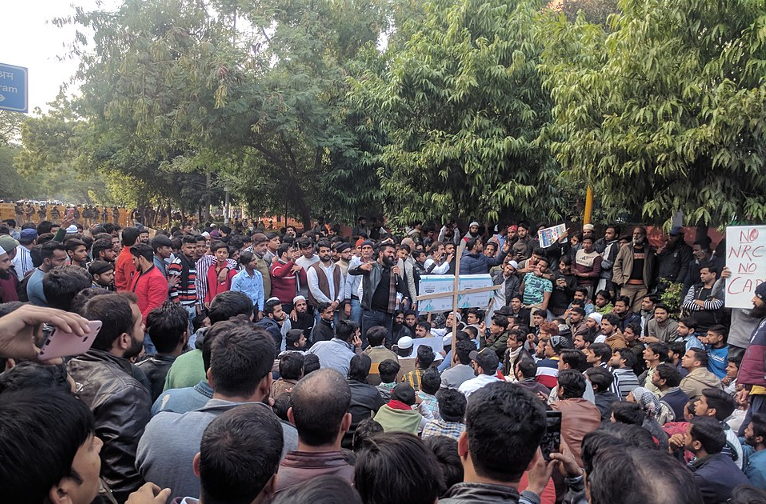I viewed Boris Johnson’s electoral triumph from India where far-right Hindu nationalists are in power and have introduced a discriminatory new citizenship bill that violates the pluralist spirit of India’s constitution, paving the way for a formally Hindu state. Protests are under way.
With Johnson’s significant majority, Britain inches closer to the ranks of nations where there has been a dramatic shift to the right – Brazil, India, Turkey, Hungary, Poland, Israel, the Philippines and the US among others. The circumstances in each country vary but each have seen blustering “strongmen” gallop to victory on explicitly chauvinist and xenophobic platforms.
The rampage of rightwing forces emerges from variations on a lethal cocktail. Real unhappiness created by viciously unequal economies is blamed on cultural others, while those who are actually responsible for austerity or impoverishment are voted back into power. Media outlets owned by thuggish oligarchs push falsehoods that convince racial or religious majorities that they are the real minorities, even improbable victims of “reverse discrimination” or “white genocide”. Where protests against repression take place, lethal force is used to suppress them.
Expecting to undo this entrenched new global reality overnight through a single election is a recipe for frustration. We have to think differently.
It is worth noting that the global far right works through canny transnational alliances. Recall Donald Trump’s enthusiastic advocacy of both Johnson and Brexit, which will now supposedly pay off in a British-US trade deal bound to hurt the provision of public services. Brazil’s authoritarian leader Jair Bolsonaro is due to be chief guest at India’s Republic Day celebrations next month.
In the face of this retrograde juggernaut, those who seek a more equal, compassionate and sustainable future have to accept that we are in a protracted battle. Neither despair nor compromises with greed and bigotry are options. We too have to join forces locally and globally contributing to the work begun by principled dissidents in places as far apart as Turkey and India, Brazil and Italy. We must organise to assist and protect vulnerable people and groups around the world.
We can learn from Indian student protesters and the Indian campaigner Harsh Mander’s call for civil disobedience to unjust and discriminatory laws; some activists will refuse to submit documents to “prove” citizenship for India’s planned national register of citizens while others are documenting hate crimes. We must build broad coalitions across campaigns on issues from race, disability and poverty to sexual violence, public health and the climate emergency. We can learn from direct action led by indigenous peoples such as the “forest guardians” of Brazil or America’s SustainUS organisation to prevent the decimation of natural resources. Like the Italian Sardines movement we can fight hatred as a political tool while also challenging everyday bigotry in our social circles.
While defeating the right at the ballot box remains vital, our long-term work involves keeping alternatives to the present alive in society’s imagination. In the face of an unthinking insistence that neoliberal inequality and bigotry are unavoidable, we need to become difficult dissidents and uncooperative naysayers who speak up. We must prepare for setbacks along the way while remembering the words of the great abolitionist Frederick Douglass: “The limits of tyrants are prescribed by the endurance of those whom they oppress.” Above all, then, we must not patiently endure injustice, we must fight the tyranny of the right.
Teaser photo credit: By DiplomatTesterMan – Own work, CC BY-SA 4.0





